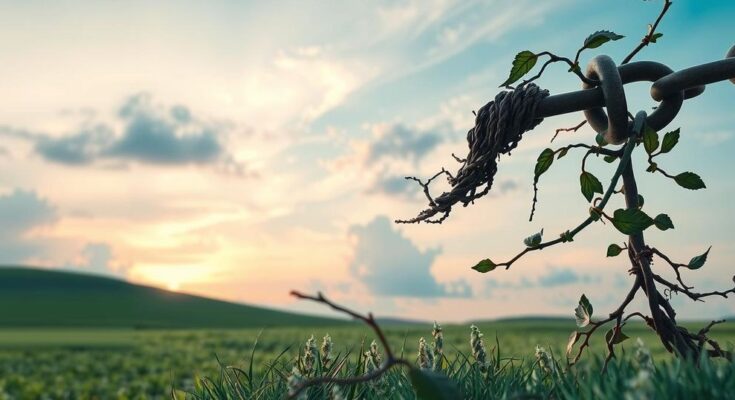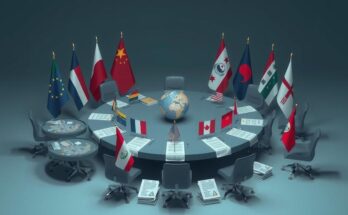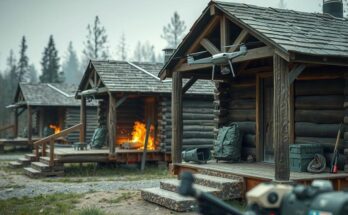Rwanda-backed M23 rebels have captured Goma, causing mass panic among residents as the Congolese army reportedly succumbs to their offensive. This takeover raises significant concerns about escalating violence and increasing civilian displacement in eastern DRC amid response from the Congolese government and international observers condemning Rwanda’s involvement. The eastern DRC remains a complex conflict zone with longstanding ethnic and military challenges.
On Monday, Rwanda-supported rebels asserted their control over Goma, the largest city in eastern Democratic Republic of Congo (DRC), amidst widespread panic reported among the 2 million residents. This takeover occurred following the expiration of a 48-hour ultimatum for the Congolese army to surrender their weapons. The M23 militia urged residents to remain calm, while the Congolese government deemed the advance as a “declaration of war.”
The M23 fighters, along with 3,000 to 4,000 Rwandan soldiers, had besieged Goma for several days, escalating a long-standing conflict in a mineral-rich area and risking further civilian displacement. The Congolese armed forces appear to have been overwhelmed by the offensive, leading some army units to relinquish their weapons to UN peacekeepers. Reports of explosions and gunfire were noted during the chaos that ensued in Goma, including a prison break resulting in fatalities.
Corneille Nangaa, the leader of the Congo River Alliance comprising M23, claimed that his forces were in control of Goma, and soldiers of the Congolese army were surrendering. Congolese government spokesman Patrick Muyaya emphasized the need for civilian protection amid the escalating military situation. The UN Security Council condemned Rwanda’s support of the rebels during recent crisis discussions, highlighting international concerns.
In defense, Rwanda dismissed the allegations regarding its involvement as unhelpful and criticized the Congolese government for undermining negotiations with M23. Congolese Foreign Affairs Minister Thérèse Kayikwamba Wagner urged the Security Council to impose an embargo on the export of minerals labeled as Rwandan. Meanwhile, UN personnel were evacuated from Goma, with borders remaining closed to further control the situation.
The DRC’s eastern regions have long been a flashpoint for conflict involving numerous armed groups, largely a fallout from the Rwandan genocide in 1994. The M23, a Tutsi-led rebel faction that previously captured Goma in 2012, has returned with a renewed offensive since 2022. With vast mineral wealth at stake, the ongoing conflict has displaced millions in the region, further complicating an enduring humanitarian crisis.
Although a UN force previously suppressed M23, the group has sustained its military capacity and justified its actions as protection for the Congolese Tutsi population. UN experts assert that substantial Rwandan troop deployments have aided M23, exacerbating an already dire humanitarian situation whereby over 3 million individuals were displaced by early 2024, adding to the challenges faced in addressing the crisis in eastern DRC.
The ongoing conflict in the eastern Democratic Republic of Congo (DRC) is a complex interplay of ethnic tensions and military operations that trace back to the Rwandan genocide. The M23 rebel group, primarily composed of Tutsi fighters, has been a key player in the region, repeatedly taking up arms against the Congolese government. The DRC, rich in mineral resources, has witnessed decades of unrest, with various armed groups vying for control, exacerbating humanitarian crises. The involvement of Rwanda signals regional implications that complicate international interventions and diplomatic efforts.
The capture of Goma by M23 rebels underscores the deepening crisis in eastern DRC, exacerbated by foreign military support and an ineffective Congolese government response. As international concern grows, the need for strategic solutions becomes urgent to address both the humanitarian fallout and the broader geopolitical tensions at play. Sustained efforts from the international community are necessary to restore stability in the mineral-rich regions and protect vulnerable civilian populations.
Original Source: www.ndtv.com




